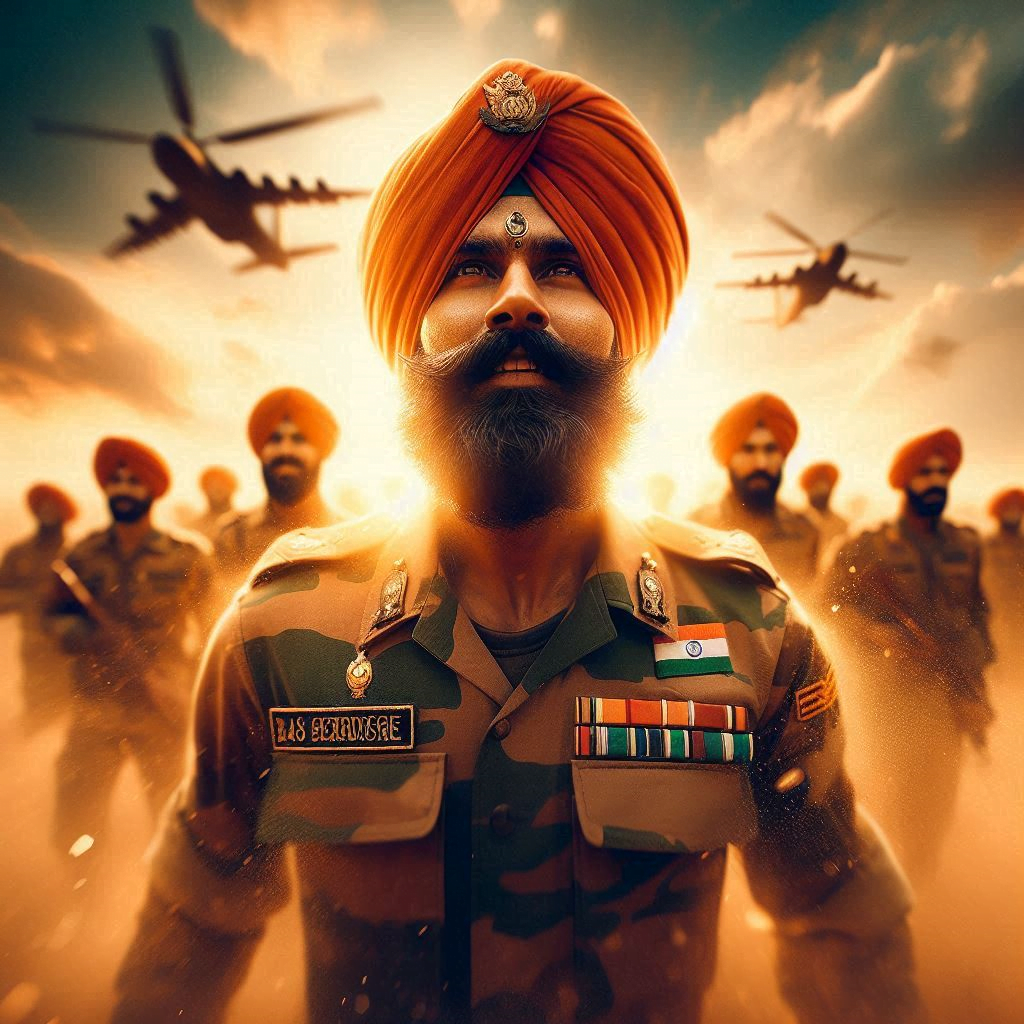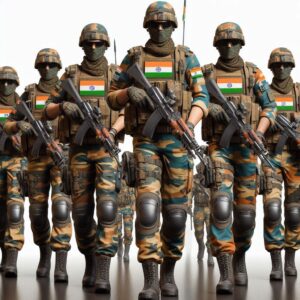SSC stands for Staff Selection Commission. It is an Indian government agency that recruits staff for various Group B (Non-Gazetted) and Group C (Non-technical) posts under the Central Government of India. It is responsible for recruiting staff for various posts in the various Ministries and Departments of the Government of India and in Subordinate Offices.
The Staff Selection Commission (SSC) recruits for a wide range of Group B (Non-Gazetted) and Group C (Non-technical) positions in the Indian Central Government. These include roles in departments like Income Tax, Central Excise, Ministry of Railways, Delhi Police, Central Armed Police Forces (CAPFs), and various ministries and offices across the country. Some of the popular departments that recruit through SSC include the Central Industrial Security Force (CISF), Border Security Force (BSF), Central Reserve Police Force (CRPF), Indo-Tibetan Border Police (ITBP), Sashastra Seema Bal (SSB), Assam Rifles (AR), and Delhi Police. These positions generally involve patrolling borders, guarding critical infrastructure, and maintaining law and order. You can find opportunities in fields like accounts, auditing, clerical, income tax inspection, sub-inspectors, and more.
There are various SSC exams conducted for different levels and positions. Here are some of the most common ones:
SSC CGL (Combined Graduate Level):
This exam is conducted to recruit staff for various Group B and Group C posts in various ministries, departments, and offices under the Government of India.
Qualification: A Bachelor’s Degree from a recognized university is mandatory.
Examination: This is a three-tiered exam:
- Tier-I: This objective type exam tests your General Intelligence & Reasoning, General Awareness, Quantitative Aptitude, and English Language skills. It carries a total of 200 marks.
- Tier-II: The format of this tier depends on the specific post you’re applying for. It can be objective or descriptive and may test subjects relevant to the chosen position. The marks for Tier-II vary between 200 and 400.
- Tier-III: This is an optional tier for some posts and is a pen-and-paper descriptive test of English/Hindi language composition. It carries 100 marks.
Syllabus: You can find the detailed syllabus for each tier on the official SSC website, but generally, it covers:
- General Intelligence & Reasoning: Analytical skills, problem-solving, decision making, verbal and non-verbal reasoning.
- General Awareness: Current affairs, science & technology, history, geography, economics, polity, etc.
- Quantitative Aptitude: Arithmetic, algebra, geometry, trigonometry, statistics, etc.
- English Language: Comprehension, vocabulary, grammar, usage, writing skills.
Posts: This exam offers a wide range of Group B (Gazetted) and Group C (Non-Gazetted) posts in various ministries, departments, and offices under the Government of India. Some popular examples include:
- Assistant Section Officer (ASO)
- Income Tax Inspector
- Assistant Audit Officer
- Inspector (Central Excise)
- Sub-Inspector (CBI) (depending on vacancy)
Job Types: These positions involve administrative, supervisory, and investigative roles. You could be handling files, managing personnel, conducting audits or inspections, assessing taxes, or investigating crimes (depending on the specific post).
SSC CHSL (Combined Higher Secondary Level):
This exam is conducted to recruit staff for various Group B and Group C posts in various Ministries/Departments/Organizations of the Government of India.
Qualification: A minimum qualification of 10+2 (Higher Secondary Certificate) from a recognized board is required.
Examination: This is a two-tiered exam:
- Tier-I: This objective type exam tests your General Intelligence & Reasoning, English Language, Quantitative Aptitude, and General Awareness skills. It carries a total of 200 marks.
- Tier-II: This is a descriptive test of English/Hindi language writing skills and carries 100 marks.
Syllabus: Similar to SSC CGL, the syllabus covers:
- General Intelligence & Reasoning: Analytical skills, problem-solving, decision making, verbal and non-verbal reasoning.
- English Language: Comprehension, vocabulary, grammar, usage, writing skills.
- Quantitative Aptitude: Arithmetic, algebra, geometry, basic statistics, etc.
- General Awareness: Current affairs, science & technology, history, geography, economics, polity, etc.
Posts: This exam recruits for various Group B (Non-Gazetted) and Group C posts across Ministries/Departments/Organizations of the Government of India. Some examples include:
- Lower Division Clerk (LDC)
- Postal Assistant (PA)
- Data Entry Operator (DEO)
- Sorting Assistant (SA)
Job Types: These roles involve clerical, data entry, and administrative support functions. You could be responsible for maintaining records, handling correspondence, processing data, or sorting mail (depending on the specific post).
SSC GD Constable (General Duty):
This exam is conducted to recruit candidates for the post of Constable (GD) in Central Armed Police Forces (CAPFs), Delhi Police, and Sashastra Seema Bal (SSB).
Qualification: A minimum qualification of 10+2 (Higher Secondary Certificate) from a recognized board is required.
Examination: This is a multi-stage selection process:
- Tier-I: This objective type exam tests your General Intelligence & Reasoning, General Awareness, Mathematics, and English/Hindi language skills. It carries a total of 100 marks.
- Physical Efficiency Test (PET): This test assesses your physical fitness for the constable role.
- Medical Test: Candidates who qualify in the PET undergo a medical examination to ensure they meet the required physical standards.
Syllabus: The syllabus is focused on basic skills and knowledge:
- General Intelligence & Reasoning: Basic analytical and problem-solving skills.
- General Awareness: Current affairs, basic knowledge of India, etc.
- Mathematics: Arithmetic operations, basic algebra, etc.
- English/Hindi Language: Basic comprehension and communication skills.
Posts: This exam recruits for the post of Constable (General Duty) in Central Armed Police Forces (CAPFs), Delhi Police, and Sashastra Seema Bal (SSB).
Job Types: These roles involve patrolling borders, guarding critical infrastructure, maintaining law and order, and participating in various security operations.
SSC MTS (Multi Tasking Staff):
This exam is conducted to recruit candidates for the post of Multi Tasking Staff (MTS) in various Central Government Ministries/Departments.
Qualification: Minimum qualification of 10th standard pass from a recognized board is required.
Examination: This is a single-tier, objective type exam:
- Tier-I: This exam tests your General Intelligence & Reasoning, General Awareness, Arithmetic, and English/Hindi Language skills. The total marks vary depending on the exam year, but typically fall around 100.
Syllabus: The syllabus focuses on basic skills and knowledge:
- General Intelligence & Reasoning: Basic analytical and problem-solving skills.
- General Awareness: Current affairs, basic knowledge of India, etc.
- Arithmetic: Fundamental operations, fractions, decimals, percentages, etc.
- English/Hindi Language: Basic comprehension and communication skills.
Posts: This exam fills vacancies for Multi Tasking Staff (MTS) in various Central Government Ministries/Departments.
Job Types: These roles involve assisting senior staff with a variety of tasks, such as housekeeping, data entry, record keeping, and basic office support.
SSC CPO (Central Police Organizations):
This exam is conducted to recruit Sub-Inspectors (SIs) in Delhi Police, Central Armed Police Forces (CAPFs), and Central Industrial Security Force (CISF).
Qualification: A Bachelor’s Degree from a recognized university is mandatory. There may be additional age limit and physical standards requirements depending on the specific CPO.
Examination: This is a two-tiered exam followed by a medical test and physical efficiency test (PET):
- Tier-I: This objective type exam tests your General Intelligence & Reasoning, General Awareness, Quantitative Aptitude, and English Comprehension skills. The total marks vary depending on the exam year, but typically fall around 200.
- Tier-II: This is a descriptive test of English Language writing skills and carries 200 marks.
- Physical Efficiency Test (PET) & Medical Test: Candidates who qualify in the written exam undergo a PET to assess physical fitness and a medical examination to ensure they meet the required physical standards.
Syllabus: The syllabus is similar to SSC CGL but may have a greater emphasis on:
- General Intelligence & Reasoning: Analytical skills relevant to police work.
- General Awareness: Current affairs with a focus on security and policing issues.
- English Language: Comprehension, vocabulary, report writing skills.
Posts: This exam recruits Sub-Inspectors (SIs) in Delhi Police, Central Armed Police Forces (CAPFs), and Central Industrial Security Force (CISF).
Job Types: These roles involve leading a team of constables, investigating crimes, maintaining law and order, and participating in specialized operations specific to each force (e.g., anti-terrorism, border security).
SSC Stenographer Grade ‘C’ and ‘D’:
This exam is conducted to recruit Stenographers Grade ‘C’ and ‘D’ for various Government Departments and Ministries.
Qualification:
- Stenographer Grade C: Bachelor’s Degree with a minimum speed of 80 wpm in Shorthand (English) and 50 wpm in Stenography (Hindi).
- Stenographer Grade D: 10+2 (Higher Secondary Certificate) with a minimum speed of 80 wpm in Shorthand (English) and 40 wpm in Stenography (Hindi).
Examination: This is a skill-based exam with two parts:
- Skill Test (Stenography): Candidates appearing for Stenographer Grade C need to dictate shorthand at 80 wpm (English) and 50 wpm (Hindi) and then transcribe it accurately. Stenographer Grade D candidates need to achieve 80 wpm (English) and 40 wpm (Hindi).
- Written Test (Objective): This objective type test assesses General Intelligence & Reasoning, General Awareness, and English/Hindi Language skills. The total marks and specific format may vary depending on the exam year.
Syllabus: There is no specific syllabus for the written test, but focusing on general knowledge and communication skills would be beneficial. The skill test obviously focuses on shorthand and stenography in English and Hindi at the mentioned speeds.
Posts: This exam fills vacancies for Stenographers Grade C and D for various Government Departments and Ministries.
Job Types: These roles involve providing stenography and secretarial support to senior officials. You’ll be responsible for taking dictation in shorthand, transcribing it accurately, and handling other secretarial tasks.
SSC JHT (Junior Hindi Translator):
This exam is conducted to recruit Junior Hindi Translators (JHTs) for various Government Departments and Ministries.
Qualification: A Bachelor’s Degree from a recognized university with Hindi as a compulsory or elective subject throughout the course.
Examination: This is a two-tiered exam:
- Tier-I: This objective type exam tests your General Intelligence & Reasoning, General Awareness, English Language Comprehension, and Hindi Language skills, including translation from English to Hindi and vice versa. The total marks vary depending on the exam year, but typically fall around 200.
- Tier-II: This is a descriptive test of translation skills from English to Hindi and vice versa. The total marks and specific format may vary depending on the exam year.
Syllabus: The syllabus focuses on assessing translation ability and general knowledge:
- General Intelligence & Reasoning: Basic analytical and problem-solving skills.
- General Awareness: Current affairs, basic knowledge of India, etc.
- English Language Comprehension: Ability to understand English text for translation.
- Hindi Language: Comprehensive knowledge of Hindi grammar, vocabulary, and translation skills.
Posts: This exam recruits Junior Hindi Translators (JHTs) for various Government Departments and Ministries.
Job Types: This role involves translating official documents and communication from English to Hindi and vice versa. You’ll need strong language skills and an understanding of technical terminology relevant to the specific department.
Bottom-line
The information provided in this article is intended for general informational purposes only and should not be construed as professional advice. While we have made every effort to ensure the accuracy of the information presented, the Staff Selection Commission (SSC) exam processes and requirements are subject to change.
We recommend that you always visit the official SSC website (https://ssc.nic.in/) for the most up-to-date and authoritative information on each specific exam, including eligibility criteria, syllabus, exam format, and vacancy details. The official website is the best source for definitive information to ensure you are properly prepared for your chosen SSC exam.




